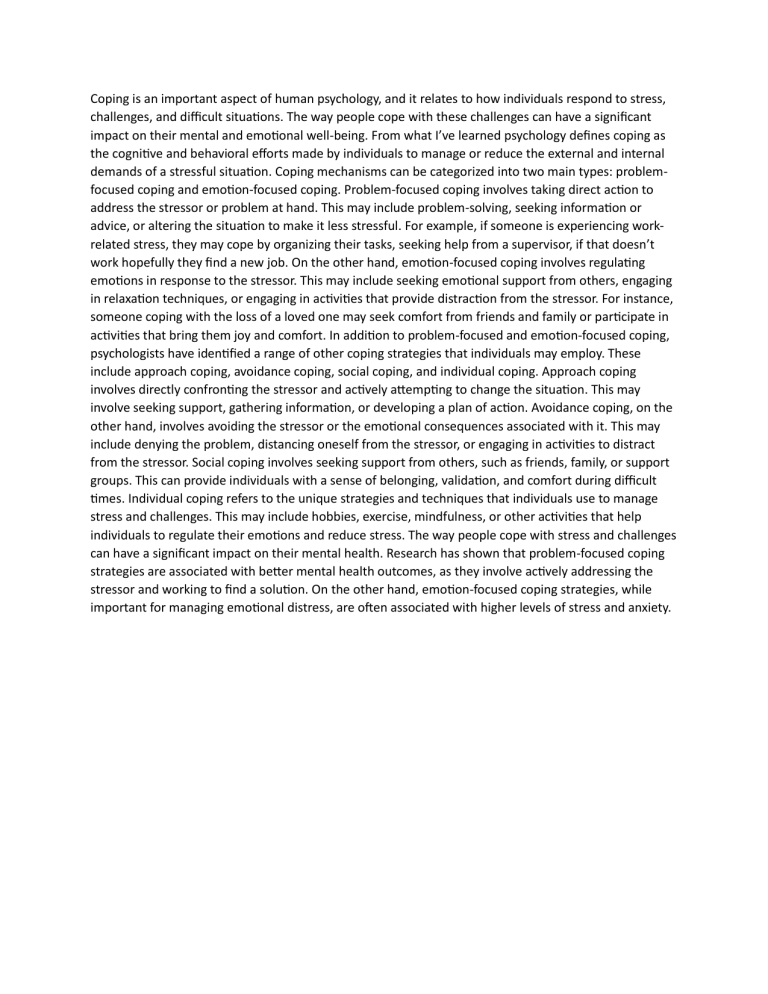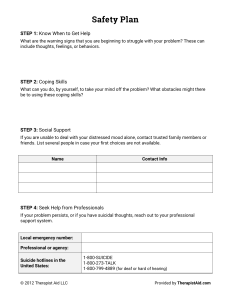
Coping is an important aspect of human psychology, and it relates to how individuals respond to stress, challenges, and difficult situations. The way people cope with these challenges can have a significant impact on their mental and emotional well-being. From what I’ve learned psychology defines coping as the cognitive and behavioral efforts made by individuals to manage or reduce the external and internal demands of a stressful situation. Coping mechanisms can be categorized into two main types: problemfocused coping and emotion-focused coping. Problem-focused coping involves taking direct action to address the stressor or problem at hand. This may include problem-solving, seeking information or advice, or altering the situation to make it less stressful. For example, if someone is experiencing workrelated stress, they may cope by organizing their tasks, seeking help from a supervisor, if that doesn’t work hopefully they find a new job. On the other hand, emotion-focused coping involves regulating emotions in response to the stressor. This may include seeking emotional support from others, engaging in relaxation techniques, or engaging in activities that provide distraction from the stressor. For instance, someone coping with the loss of a loved one may seek comfort from friends and family or participate in activities that bring them joy and comfort. In addition to problem-focused and emotion-focused coping, psychologists have identified a range of other coping strategies that individuals may employ. These include approach coping, avoidance coping, social coping, and individual coping. Approach coping involves directly confronting the stressor and actively attempting to change the situation. This may involve seeking support, gathering information, or developing a plan of action. Avoidance coping, on the other hand, involves avoiding the stressor or the emotional consequences associated with it. This may include denying the problem, distancing oneself from the stressor, or engaging in activities to distract from the stressor. Social coping involves seeking support from others, such as friends, family, or support groups. This can provide individuals with a sense of belonging, validation, and comfort during difficult times. Individual coping refers to the unique strategies and techniques that individuals use to manage stress and challenges. This may include hobbies, exercise, mindfulness, or other activities that help individuals to regulate their emotions and reduce stress. The way people cope with stress and challenges can have a significant impact on their mental health. Research has shown that problem-focused coping strategies are associated with better mental health outcomes, as they involve actively addressing the stressor and working to find a solution. On the other hand, emotion-focused coping strategies, while important for managing emotional distress, are often associated with higher levels of stress and anxiety.
